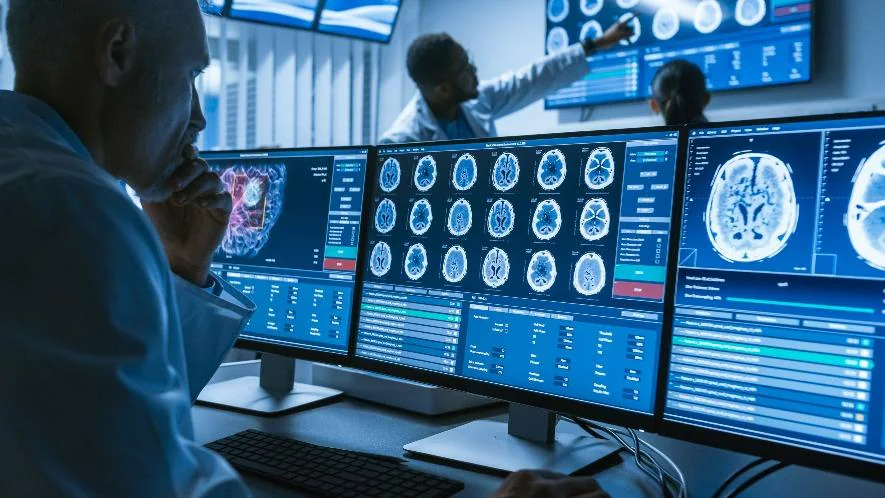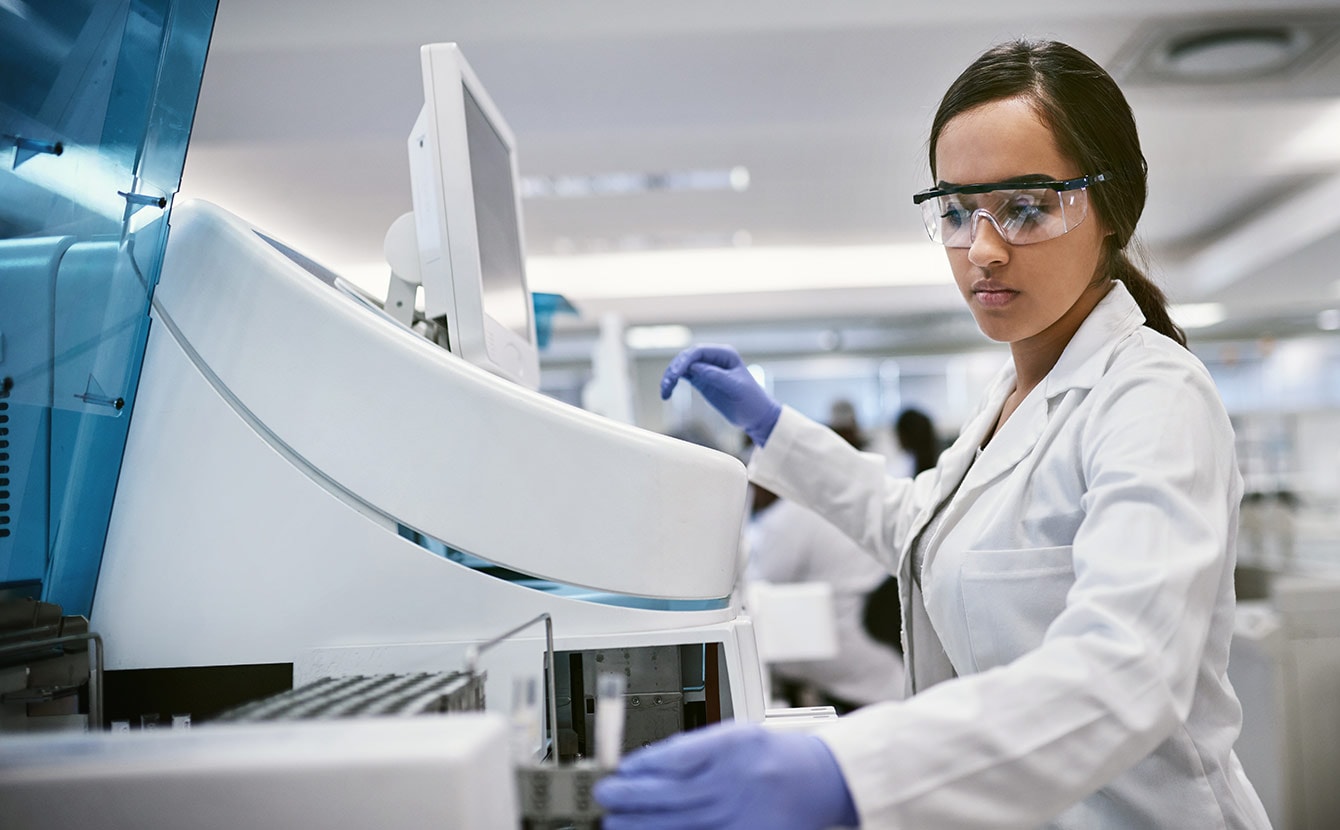
The medical device industry is undergoing a digital transformation, and AI has the potential to revolutionize disease prevention, diagnosis, and therapy. Technical capabilities exist for incorporating AI into medical devices, but market adoption is impeded by uncertainty around regulation and lack of trust from physicians, therapists, and patients. A combination of existing regulations and standards can provide a practical approach to implementing AI in medical devices.
Read the Whitepaper
Enabling AI in Medical Devices
AI is reshaping the medical device market
The AI market is growing rapidly with high potential for commercial success. Many companies, both large and small, are investing in AI applications. They see huge improvements in productivity, efficiency, and cost reduction. The healthcare industry, in particular, is experiencing significant growth in AI investments. Highly promising AI applications are currently in development and will create healthcare savings. FDA-approved AI-based medical devices are also on the rise. Despite the large amount of investment and research in AI, the total number of FDA approvals of AI-enabled medical devices remains relatively low, which raises the question: Why does this large gap exist?

What is preventing AI from entering the healthcare market?
The healthcare market is highly fragmented, making it difficult for new technologies, such as AI, to be integrated quickly. Furthermore, the target group of end-users for AI and medical products is heterogeneous, which presents a significant challenge in developing and implementing AI solutions that meet everyone’s requirements. The regulatory landscape for AI-based medical software is also complex, with the FDA and EU providing guidelines and requirements for medical device manufacturers (i.e. the MDR).
However, the upcoming EU AI Act introduces new risk classes for AI-based systems that do not fully align with the MDR. Despite these challenges, start-ups with long-term venture capital backings as well as large corporations are developing data-driven and AI-based products to improve overall patient care. Overall, trustworthy AI solutions and regulatory frameworks could improve user acceptance and increase the adoption of new technologies.
Best practices for building trustworthy AI-based medical devices
To ensure that AI-based medical devices are trustworthy, the right procedures and best practices are crucial. This should include high-quality data management, user-centered design, best practices for software development, and AI lifecycle. The user group should be involved early in the development process, and a standardized software development process is necessary, along with processes for risk management and quality management. The development of AI-based software requires an agile development process with continuous integration and continuous delivery.
Measures are also needed to monitor the behavior and output of the software during its operation and intervene when necessary. A technical safety concept should be in place to identify all potential hazards that could arise. Also, reproducibility and explainability are crucial to building trust in the application of AI within medical products.
Read the Whitepaper
Enabling AI in Medical Devices
Do you have any questions?
Contact our experts
Contact us












